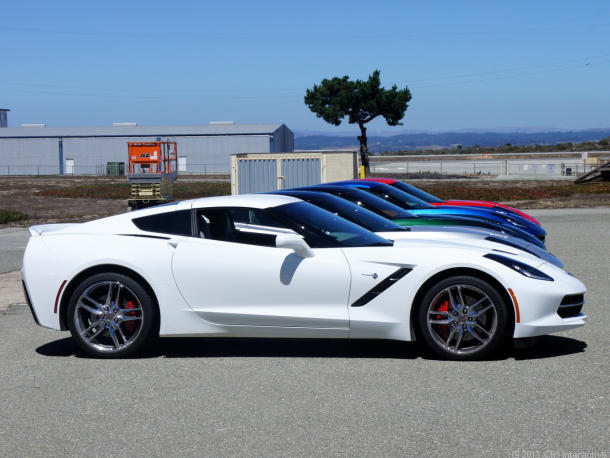A daughter of a former business partner of the real
Wolf of Wall Street has penned an open letter to
L.A. Weekly to alert movie-goers of the part of
Jordan Belfort‘s story
Martin Scorsese chose not to include in his film: the effect his crimes had on the families of the investors involved.
The girl’s name is Christina McDowell, and she was just a freshman in college when she attended the trial of her father,Tom Prousalis.
Jordan Belfort, played by Leonardo DiCaprio, is described as the government’s “star witness” to testify against Prousalis. Belfort had just pleaded guilty to money-laundering and securities fraud, and would go on to avoid years of jail time by ratting on a whole slew of criminals similar to himself.
As McDowell writes, Prousalis and Belfort “were in cahoots together with a list of ‘seemingly innocuous, legitimate companies’ that did not actually exist yet were all taken public to con unsuspecting investors and make the pair along with many others at Stratton Oakmont Inc. millions of dollars richer.”
The letter then takes an ugly turn as McDowell describes the day her father went to prison.
She recalls her mother locking herself in the bathroom and throwing up, not only because her husband was going under but because he had taken the family down with him.
Prousalis laundered money in his daughter’s name and hid what was left of the family’s assets in a Wells Fargo account.
McDowell, just 18, was receiving multiple phone calls from creditors and investors threatening to sue her. Her father had also left her her nearly $100,000 worth of debt.
The family was left almost penniless after the entire Wells Fargo account was liquidated. Her younger sister ran away at 17, and McDowell lived on other people’s couches and out of her car for roughly two years.
Starving and ashamed, McDowell barely survived on tips from her restaurant job. She even had to change her name because her father technically stole her identity by setting up the aforementioned account.
“It’s a pretty confusing experience to go from flying private with Dad to an evening where he’s begging you for a piece of your paycheck so he can buy food for dinner,” she writes.
The worst part, McDowell says, is that she still believed her father was innocent and that the government and Belfort were the bad guys.
“I believed that by taking out all those credit cards in my name, my father was attempting to save me. I believed him when he got out, and when he told me everything would be OK. I believed him until he tried to do the same thing all over again — until I was at risk of being arrested myself (and I’m saving that story for the memoir).”
McDowell then lays into the director and actors of “The Wolf of Wall Street” for painting such a positive picture of Stratton Oakmont and leaving out what these people and their co-conspirators did to their families and clients.
She calls Martin Scorsese “dangerous” for making movie-goers believe that Jordan Belfort was not an evil human being, and that his schemes are entertaining rather than the real-life tragedies.
“Come on, we know the truth,” she says. “This kind of behavior brought America to its knees.”
McDowell labels lead actor Leonardo DiCaprio a disgusting hypocrite for claiming to be a model humanitarian who then glorifies Belfort’s crimes as well as the film’s frequent misogyny.
“Did you think about the cultural message you’d be sending when you decided to make this film?” she asks.
“You have successfully aligned yourself with an accomplished criminal, a guy who still hasn’t made full restitution to his victims, exacerbating our national obsession with wealth and status and glorifying greed and psychopathic behavior.”
McDowell sees Belfort’s true face because she was exposed to the same luxuries and privileges he was. She drove a
Range Rover in high school, “
snorted half of Colombia,” and got every guy she wanted because her father would regularly take them for rides in his private planes.
But then she discovered who her father really was: a cruel, soulless money addict obsessed with wealth and fame. Scorsese’s film makes Belfort look like a good person underneath, but McDowell is positive that like her father, he’s less of a man than the homeless guy they pass on the street every day.
Some of McDowell’s father’s victims lost everything. They cannot afford to send their kids to college, pay their medical bills, and will struggle to pay off their debts until they are dead.
“Let me ask you guys something,” McDowell writes as her letter comes to a close.
“What makes you think this man deserves to be the protagonist in this story? Do you think his victims are going to want to watch it? Did we forget about the damage that accompanied all those rollicking good times? Or are we sweeping it under the carpet for the sale of a movie ticket? And not just on any day, but on Christmas morning?”
McDowell ends by urging us not to support “The Wolf of Wall Street” because it only provokes people like Belfort to go even farther with their crimes. The film lacks the reality of their wrongdoings, she says, and every time we celebrate Scorsese’s film, the more wolves we help create.
 WENN.com
WENN.com
 Kanto Freestyle Breakfast
Kanto Freestyle Breakfast








































